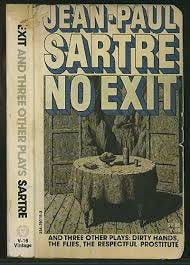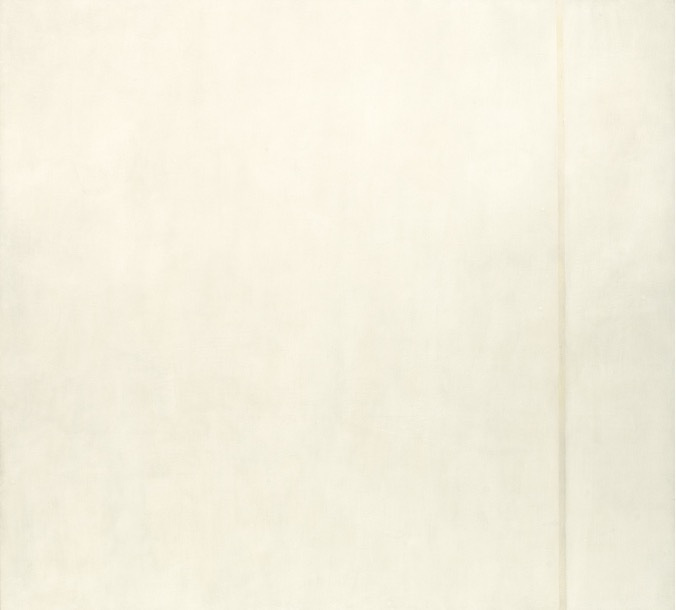Think of this as your cultural prix fixe, a multi-course fête of film, music, literature, art, and objects that allows you to fully indulge in all the tasty themes that make up the existential life. Every week we’ll deliver a menu of recommendations that will expand, challenge, frustrate, stimulate, and stir.
Watch:
Wings of Desire
Wim Wenders, 1987
Wings of Desire is the well-beloved 1987, German cinematic masterpiece by Wim Wenders and has got it all when it comes to existential themes: a heavy existential voiceover, free will, freedom, choice, meaning, morality. Two angels in a divided Berlin who observe and listen to the thoughts of Berliners; their raison d’etre is, as one says, to "assemble, testify, preserve" reality. One falls in love with a trapeze artist and gives up his angeldom for coffee, cigarettes, and sex and references range from Rainner Maria Rilke to Nick Cave—what more could one want?
“It's great to live by the spirit, to testify day by day for eternity, only what's spiritual in people's minds. But sometimes I'm fed up with my spiritual existence. Instead of forever hovering above I'd like to feel a weight grow in me to end the infinity and to tie me to earth.”
“I couldn’t say who I am. I don’t have the slightest idea. I have no roots, no story, no country, and I like it that way. I’m here. I’m free. I can imagine anything. Everything’s possible. I only have to lift my eyes and once again I become the world. Now, on this very spot, a feeling of happiness that I could keep forever.”
Listen:
Black Gold
Nina Simone, 1969
Nina Simone’s Black Gold is a live album recorded in 1969 at the Philharmonic Hall, New York City that opens with Ed Williams welcoming Nina Simone on stage by saying “You know truth. You respect truth. You’re not afraid of it. You can sit at the welcoming table.” From racial identity and struggle to freedom and liberation, authenticity and self-expression to injustice and protest, is one of the most alive live performances of all time. Highly recommend listening to in one long sit, lights low, undistracted.
Sad, deserted shore, your fickle friends are leaving
Ah, but then you know it's time for them to go
But I will still be here, I have no thought of leaving
I do not count the timeFor who knows where the time goes?
Who knows where the time goes?
Read:
“No Exit”
Jean-Paul Sartre, 1944
Jean-Paul Sartre's “No Exit,” is often known for it’s famous line: 'hell is other people.' This short play is set in a single room, exploring the torment of three characters, Garcin, Inez, and Estelle. The ‘torture’ of all involved was caused by them simply being themselves—ha! And, arguably, the greatest torture was inflicted by each person being trapped within themselves (perpetually awake). If you don’t like yourself, is there a worse punishment?
“I’ll endure anything, your red-hot tongs and molten lead, your racks and prongs and garrotes—all your fiendish gadgets, everything that burns and flays and tears—I'll put up with any torture you impose. Anything, anything would be better than this agony of mind, this creeping pain that gnaws and fumbles and caresses one and never hurts quite enough."
“One always dies too soon–or too late. And yet one’s whole life is complete at that moment, with a line drawn neatly under it, ready for the summing up. You are—your life, and nothing else.”
The Red Poppy
Louise Glück,1943-2023
The great thing
is not having
a mind. Feelings:
oh, I have those; they
govern me. I have
a lord in heaven
called the sun, and open
for him, showing him
the fire of my own heart, fire
like his presence.
What could such glory be
if not a heart? Oh my brothers and sisters,
were you like me once, long ago,
before you were human? Did you
permit yourselves
to open once, who would never
open again? Because in truth
I am speaking now
the way you do. I speak
because I am shattered.
Flowers, seasons, trees, the wind, longing, loss, an endlessly exalted garden: this is the stuff of the book. From The Wild Iris a stunning book of poems that doesn’t shy away from diving into basic lyrical tropes in the best of ways. Rest in peace, Louis.The Red Poppy - Louis Glück
Look:
“The Voice”
Barnett Newman, 1950
Barnett Newman was a prominent American abstract expressionist painter known for his large-scale color field paintings, characterized by their simplicity, bold use of color, and an emphasis on the spiritual and existential dimensions of art. His work often invites a deep, existential analysis, and "The Voice" is one such painting that can be explored from this perspective.
Imagine standing before one of these colossal canvases (this one is 8′ 0″ x 8′ 10″ and lives at the MoMA). It's like gazing into the abyss. Newman's skillful use of color fields and that singular, towering vertical stripe takes you on a journey into the sublime and the void. The vast expanse of emptiness signifies the existential human experience, where the vertical stripe symbolizes your voice in this immense cosmic chatter. It's a powerful representation of individual existence in the face of the infinite.
“I prefer to leave the paintings to speak for themselves”
Feel:
Black Turtleneck
Speaks for itself.
Reformation: Faith Regenerative Merino Fitted Turtleneck
Ilana Khon: Gia Turtleneck
Babaà: Jumper no17 black
J. Crew: Tissue Turtleneck
I hope you find this feast to your satisfaction. Let us know what you liked, what you hated, or what you want to recommend. This newsletter is not just about wetting our appetite but about creating a community with like minded individuals.












